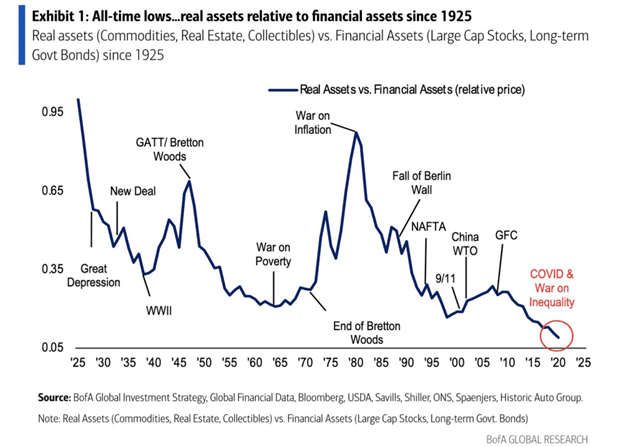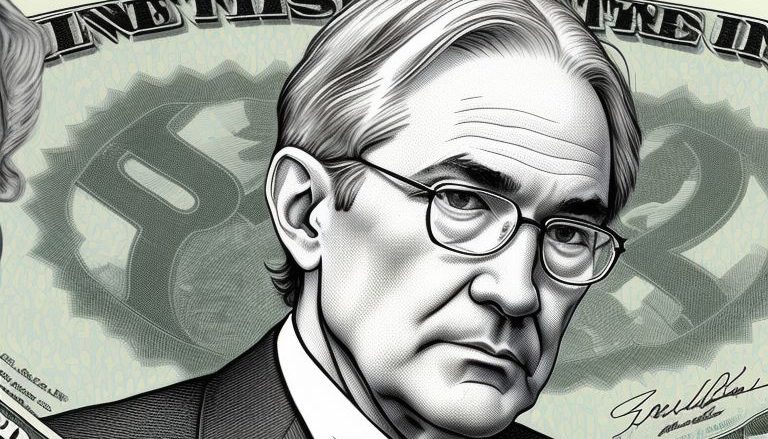If you’re a long-time reader, this week’s inflation print over in the US doesn’t come as a surprise.

In light of that, let’s do something a bit more practical this week, shall we?
This article was originally published by Capitalist Exploits.
One question (or concern, if you will) we often get is how do you protect yourself in an inflation or deflation?
Let’s look at some examples of previous historic market crashes and then see how a portfolio such as our Insider portfolio would have fared (as a side note — until the end of the week you can still lock in a $1,000 discount on an Insider membership).
You’re probably familiar with our long commodity outlook and our negative stance towards financial assets. These are typically inversely correlated and both trade in long cycles spanning years rather than months.

Let us now consider historic collapses in financial equities (happening now), and then look at how a portfolio such as ours has fared in these times.
Since the late 1800’s, all three of the major crashes took place while commodity markets entered these phases being significantly undervalued, and in all situations over the following decade commodity markets became wildly overvalued.
Let’s take a look:
- 1929,
- The late 1960s,
- The late 1990s,
- And then we have today. Let’s call it the 2020’s for ease of reference
Subsequent to each of these periods, commodities entered decade-long powerful bull markets. Also — and we talk about this a lot — in each situation not only did undervalued commodity markets perform well, but they all became wildly overvalued.
If you had invested in commodities or commodity related equities in any of these three previous periods, the returns on both an absolute and relative basis were huge, even in the great depression of the 1930s.
Let us take our current portfolio, which, for simplicity, we’ll chop up into quarters — 25% energy, 25% metals and mining, another 25% into precious metals (stored safely out of reach of the pointy shoes), and then the last 25% into agriculture. It’s not exact, but it’s a decent proxy.
During the Great Depression (from 1929 to 1940), such a portfolio would have returned 122%. The stock market in this time frame period lost 50%. No bueno!

One thing to also remember is that this was a deflationary bust. Consumer prices actually fell by roughly 20% over the decade. Holding cash, for example, would have returned you 20% over the decade. Certainly better than owning the stock market. But owning a commodity portfolio described earlier you’d have looked like a genius… and you would have been.
Now let’s fast forward to the 70’s. That same portfolio from 1970 to 1980 would have clocked you in at over 400%. The interesting thing here is that, unlike the 1930’s (which were deflationary), the 70’s were inflationary. But even so, a commodity-based portfolio outperformed not only the stock market, but also the real rate of inflation which ran about 80% from 1970 through 1980.
What about the 2000’s? Glad you asked. This is a market we can relate to here as we experienced it first hand. In any event, from 1999 through 2010 you’d have made about 360%. Way better than a poke in the eye with a burnt stick, and certainly better than the paltry 35% which equities returned over the same timeframe.
Was the post dot-com crash commodity bull market of this period inflationary or deflationary? Well, it wasn’t really either as far as we can tell. Sure, we had the whole Lehman fiasco, leading to the GFC, which sent the world into a tailspin and banking and short-term energy crisis. Kinda a mixed bag.
The thing that is consistent through each of those three periods is that commodities were wildly undervalued going into each crisis.
We have the same thing today — as you’d know by reading these missives. We’ve got these brain dead politicians, a populace dosed up on ideological climate nonsense, and woke neo-marxism that is impacting the markets. Thank goodness we’re not seeing extreme monetary policy. Oh wait, we’ve the most extreme circumstances on that front, too. Oh well, at least we’re not moving towards global and domestic conflict. Shoot, we’ve got that too!
But hey, perhaps we’re better off ignoring everything you’ve just read and going by what the popular press tells us.

Some food for thought for the weekend. Have a great one!





